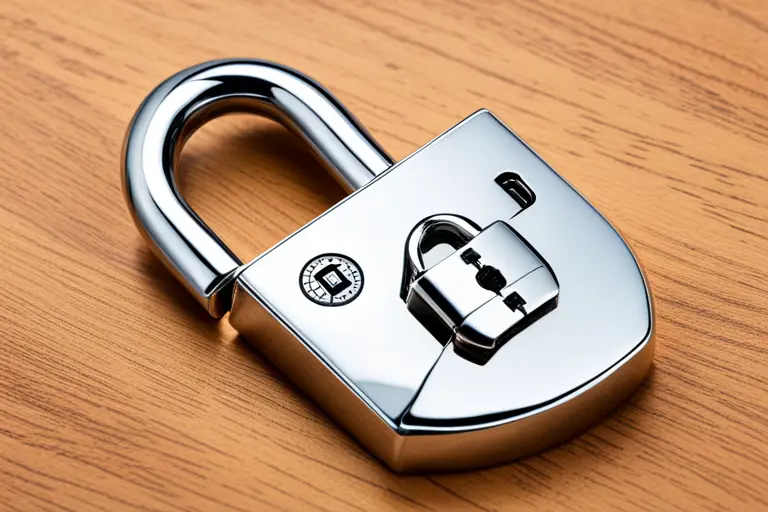Are you tired of forgetting your passwords or using the same one for every account? It’s time to strengthen your security with the help of password managers. These tools not only save you time and effort, but also enhance the protection of your digital assets.
Weak passwords are one of the biggest risks to your online security. Using simple, easily-guessed passwords can leave you vulnerable to hackers and identity theft. Password managers can help you generate strong, unique passwords for each of your accounts, and automatically fill them in for you when you need to log in.
In this article, we’ll explore the advantages of password managers and how they can improve your online security.
The Risks of Weak Passwords
Don’t let hackers easily crack your accounts by using weak passwords – it’s like leaving your front door unlocked for them! Weak passwords are easy to guess, and this makes it easy for cybercriminals to gain access to your online accounts.
Using the same password for multiple accounts is also a no-no, as it means that once a hacker cracks one password, they will automatically have access to all of your accounts.
To avoid these risks, it’s important to use a strong password for each of your accounts. Strong passwords should consist of at least 12 characters, including a mix of upper and lowercase letters, numbers, and symbols.
It’s also important to change your passwords regularly, as this can help to keep hackers at bay. However, remembering multiple strong passwords can be a challenge, which is where password managers come in handy.
Understanding Password Managers
You’ll be happy to know that using a password manager can make your life so much easier when it comes to keeping track of all your various login credentials. Essentially, a password manager is a tool that securely stores all of your passwords in one place, allowing you to access them with just one master password.
This means you don’t have to remember a different password for every website or application you use, and you don’t have to worry about writing them down or using weak, easily-guessed passwords.
Password managers also offer other helpful features, such as generating strong, unique passwords for you and automatically filling in login information on websites and apps. Plus, since all of your passwords are stored in one secure location, you can easily update or change them as needed without having to remember which passwords go where.
Overall, using a password manager is a simple and effective way to improve your online security and make your life a little bit easier.
Convenience and Time-Saving Benefits
Using a password manager can greatly simplify your online life by allowing you to easily access all your login credentials with just one master password, saving you time and eliminating the need to remember multiple passwords.
With a password manager, you can say goodbye to the hassle of resetting forgotten passwords or trying to come up with new ones for every website or app you use. Instead, you can rely on the password manager to securely store and manage your passwords, while you focus on more important things.
Password managers can also eliminate the time-consuming task of manually entering login credentials each time you visit a website or use an app. With just one click, your password manager can automatically fill in your username and password, making the login process faster and more convenient.
This can be especially helpful if you have a lot of online accounts or if you frequently switch between devices. So, if you want to save time and streamline your online experience, using a password manager is definitely worth considering.
Enhanced Security and Protection
By entrusting your login credentials to a reliable and secure password management tool, you can rest easy knowing that your online accounts are well-protected. Password managers use encryption to keep your passwords secure, making it difficult for hackers to access your private information.
Additionally, many password managers offer two-factor authentication, which requires a second method of verification in addition to your password, adding an extra layer of security. Using a password manager also allows you to generate strong and unique passwords for each of your online accounts.
This means that even if one account is compromised, your other accounts will remain safe. Plus, since most password managers automatically fill in your login information, you won’t have to worry about typing in your passwords and potentially falling victim to keyloggers or other forms of malware.
In short, by using a password manager, you can greatly enhance your online security and protect yourself from potential cyber attacks.
Multi-Factor Authentication Features
With the increasing sophistication of cyber attacks, it’s becoming more important than ever to implement multi-factor authentication features to protect your online accounts.
Password managers offer this capability by allowing you to set up two-factor authentication (2FA) for your accounts. This means that in addition to your password, you’ll need to provide a second form of identification, such as a fingerprint or a code sent to your phone, to access your account.
Using 2FA significantly reduces the risk of unauthorized access to your accounts, as it adds an extra layer of security. Even if your password is compromised, the attacker won’t be able to access your account without the second factor.
Password managers make it easy to set up and manage 2FA for all of your accounts, and many even have built-in authenticator apps to generate one-time codes for you.
By utilizing multi-factor authentication, you can significantly improve your online security and protect your valuable personal and financial information.
Choosing the Right Password Manager for You
When it comes to keeping your online accounts safe, finding the best password manager for your needs can be a game-changer.
There are many password managers available on the market, each with its own unique set of features. So, how do you choose the right one for you?
First, consider what features are important to you. Do you want a password manager that offers multi-factor authentication? Do you want one that can generate strong, unique passwords for each of your accounts? Do you need a password manager that can sync across multiple devices?
Once you have a list of your must-have features, you can begin to narrow down your options. Don’t be afraid to read reviews or test out a few different password managers before making a final decision.
Ultimately, the right password manager for you is the one that you feel most comfortable using and that meets all of your security needs.
Best Practices for Maintaining Strong Passwords
Maintaining strong passwords is crucial to keeping your online accounts safe and secure. First and foremost, avoid using simple and predictable passwords like ‘password123’ or your birthdate. Instead, create complex passwords that include a mix of uppercase and lowercase letters, numbers, and symbols.
Don’t use the same password for multiple accounts, as this makes it easier for hackers to access all of your accounts at once. Another important practice is to change your passwords regularly. It’s recommended to update your passwords every 90 days, especially for accounts that contain sensitive information such as banking or personal data.
Additionally, enable two-factor authentication whenever possible, which adds an extra layer of security by requiring a code sent to your phone or email in addition to your password. By following these best practices, you can help ensure that your online accounts are protected from potential threats.
Frequently Asked Questions
Are password managers completely foolproof and invulnerable to hacking attempts?
No, password managers are not completely foolproof and can still be vulnerable to hacking attempts. It’s important to choose a reliable and secure password manager, use strong passwords, and enable two-factor authentication to further protect your accounts.
Can password managers also store other sensitive information apart from passwords?
Yes, password managers can store other sensitive information like credit card details, personal identification numbers, and bank account information. It provides a secure and convenient way to manage all your confidential data in one place.
What happens if I forget my master password for the password manager?
If you forget your master password for a password manager, you won’t be able to access your stored passwords. The only option is to reset the account, which may result in losing all your stored data.
Is it safe to use the same password manager across multiple devices?
Yes, it is safe to use the same password manager across multiple devices as long as you take proper precautions such as enabling two-factor authentication and keeping your devices and software up-to-date.
How do password managers handle auto-fill and auto-login features on websites?
Password managers handle auto-fill and auto-login features by securely storing your login credentials for each site. When you visit a site, the manager automatically fills in your login info, allowing for quick and easy access without compromising your security.
Conclusion
In conclusion, using a password manager is a wise decision for anyone looking to strengthen their online security. With the increasing number of cyber attacks and data breaches, it’s essential to have strong and unique passwords for every account. Password managers provide convenience and time-saving benefits by automatically generating and storing complex passwords for you.
Moreover, password managers offer enhanced security and protection. Features such as encryption and multi-factor authentication provide peace of mind knowing that your sensitive information is secure. By choosing the right password manager and following best practices for maintaining strong passwords, you can significantly reduce the risks of weak passwords and protect your online identity.

Hey there, tech enthusiasts! I’m your go-to content writer, delving into the fascinating world of technology hacks. Get ready to unlock mind-blowing secrets and discover innovative solutions through my engaging and insightful blogs.


